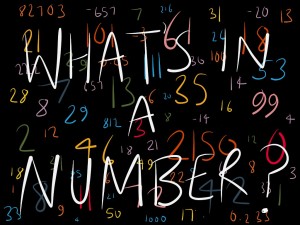What’s in a number? Why I refused cognitive testing.
What’s in a number? I refused cognitive testing today at Ashlynn’s school. Despite me saying I was so sure about not doing it two months ago, I still agonized over the decision until today. Today, the psychologist and myself finally had a chance to chat. She has 20 years of experience and has been working with preschool kids exclusively. She sounded smart, thoughtful, and honest.
As I ran through my list of concerns to her, I didn’t realize how emotional I still am about it. The more I talked about how I don’t feel a cognitive test would be valid right now and why, the more upset I became. I really have no idea why. Maybe I can process that another time. I just know the more I made a case for myself and Ashlynn, the more I realized I already knew my decision was “no.”
The woman had to agree that her global apraxia (s) would impact performance, which in turn would impact the score “the number,” I thought to myself.. She also reminded me I might get a score (number) I don’t like.
It all comes back to that damn score and my post outlining concerns about this testing: Accuracy of IQ scores with global apraxia.
I know there are professionals who would read the testing and use it for programming, but I also know there are professionals who go straight to that “number.” They want the quick and dirty FSIQ, full scale IQ, and make a judgement on a kid just from that. People working with a child who will make a blanket judgement about their capability (or lack there of) based on A NUMBER. I’ve seen teachers and even principles ask for that number, and did they read the report? Did they read all the disclaimers or qualifying statements? No. Why would they do that? They have that number. They know what the kid is capable of.
Well that’s not happening to my kid.
She is not a number. She is not a score. Maybe one day, probably one day in the future I will consent to that particular testing, but today is not the day. Her body isn’t yet cooperating enough to really show what her mind knows.
I could be wrong, maybe I’m being sensitive, but I see them looking at me like I’m in some sort of denial. I can’t explain it, but my friend Kim, an SLP in NY who also has a kiddo with global apraxia summed it up best. “They see her as more disabled. They want to show you.” And that is exactly right. They want me to see a number in black and white as some sort of proof that she is more disabled than I believe her to be.
There’s just one problem. They don’t see what I see. Ever since Ashlynn started talking, what the school saw lagged behind what she was doing at home. Ashlynn said her first word “hi” at 1 year and said it consistently and on demand. When she entered school at 3, it took her half the year to utter it to anyone . The SLP had to work on that, and finally a note came home that said she did it without prompting. I was happy she was doing it at school, but I mean, this wasn’t progress to me. She already said hi without prompting.
That’s just the first example in what would be many.
“She’s counting consistently to 5!” I smile. She’s been counting to 20 (skipping 13) for months now.
“She knows the letters of her name!” I smile. She can find or point to most of the letters when we are home. At least the SPED teacher’s assessment was more accurate, but it still isn’t what Ashlynn shows here at home.
“She’s talking to peers, but still doesn’t have a lot of pretend play.” She plays pretend games with her brother everyday at home. Another half smile from me.
The list goes on. Bottom line, I always say a mother is the expert on her child, and she doesn’t have to be in the educational field. We KNOW our children. We live and breathe them. If Ashlynn has yet to show what she actually knows in 3 years of being in school, am I really to think she will perform accurately on a standardized, formal assessment??
On the consent form the SLP wrote “mom does not agree to cognitive testing.” To make it clear, I crossed that out and wrote “mom refused cognitive testing.” I don’t know what got into me. I guess my claws came out. I am refusing a number. A number is just a number. Now let’s get busy helping her reach her potential.
